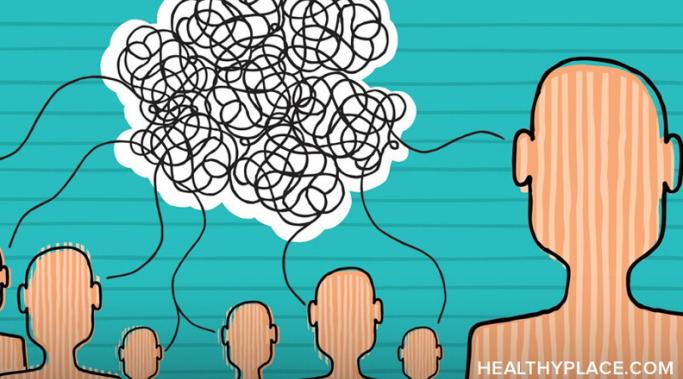Co-fronting with alternate personalities (alters) in dissociative identity disorder (DID) is something I only recently learned about. Sharing my mind with multiple identities, each with thoughts, feelings, and perspectives, lends itself to interesting conversations. These internal complexities can lead to co-fronting (when two or more alters are in control of the body at the same time) while significantly influencing how conversations unfold internally and externally, depending on the factors present at the time.
Dissociative Living
Every morning, I think about communicating with my alters. I embark on a journey within myself, stepping onto the internal bus where my alters await. With a roll call and a gentle reminder that I'm the sole driver, we set out on the day's path. Over the years, my alters, and I have traveled a winding road of unproductive, hostile communication, marked by fear and instability at the outset. But with time, understanding, and perseverance, we've learned to navigate this intricate terrain, fostering a dialog that supports our overall wellbeing by communicating with alters.
Routines and visual schedules can help a parent with dissociative identity disorder (DID). Growing up, my life was marked by unpredictability. I found myself perpetually in a hypervigilant fight-or-flight crisis mode. When I was diagnosed with dissociative identity disorder, I thought I would spend the rest of my life in this mode. When I found out I was going to be a parent, the idea of parenting the way I functioned for most of my life terrified me. Little did I know I would soon discover the power of routine and visual schedules as a parent with DID.
My name is Kris McElroy, and I am the new author of "Dissociative Living." I received a diagnosis of dissociative identity disorder (DID) in 2013 when I was 28 years old. Since then, I have been navigating the complexities of living with DID, especially in relation to parenting, coexisting with alters, professional pursuits, and interpersonal relationships. I aspire to foster a shared understanding through the exchange of our experiences as we navigate the journey of dissociative living together.
One of the most important components of any healing journey is finding the right therapist, and this is especially true when you have dissociative identity disorder (DID). That being said, it is critical to find a therapist who can work with you and your specific needs to set you on the right path toward recovery.
A critical aspect of living with dissociative identity disorder (DID) and all your moving parts is having multiple personalities to manage on a regular basis. These personalities often vary in age and appearance, and they typically have traits that make them unique in the eye of the individual living with DID. Taking care of parts is essential to managing DID on a daily basis, but what happens when their needs are not met?
One of the most fear-inducing symptoms of dissociative identity disorder (DID) is dissociative amnesia. When the mind is elsewhere and split off from the conscious body, it can be easy to lose track of everything from time to conversations with other people. It took me years before I understood this commonly overlooked symptom of DID, and just as long to gain control over it and my everyday life.
The amount of trauma that each person with dissociative identity disorder (DID) has undergone varies, but the end result is the same. Having DID means needing to live with the possibility of being triggered on a frequent basis, but what does this mean? What does it look like when a person with DID is triggered?
There is nothing worse than thinking you're going to get a good night's rest, only to find yourself tossing and turning for hours until your alarm goes off. A poor night’s sleep can impact the following day, leading to a loss in productivity and low energy levels across the board. When you have a mental health condition such as dissociative identity disorder (DID), these types of nights are common, but they don’t have to have a lasting negative impact on your overall quality of life.
"What do your alters look like?" is but one question I receive from people who do not live with dissociative identity disorder (DID). It's because one of the most fascinating parts of DID to people who don’t live with it is the concept of alters. Under the internal family system (IFS) theory, we all have parts of our personality that make us tick. While we may have one part that wants to eat a slice of cake, we might have another part that tells us to skip the empty calories. This isn’t so far from what people with DID experience, but on a more extreme basis. People living with DID may have dozens of parts to juggle regularly, which may make it slightly more challenging compared to the average person.









